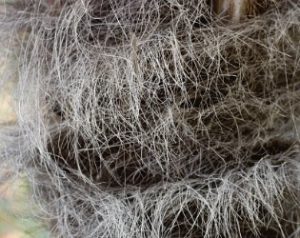Posted on September 8, 2022
What Is Baler Twine?
Baler twine is used to bind fibrous material together. It has a high tensile strength of 95 to 325 psi and is made of sisal or synthetic fibres. This type of twine is used for a wide variety of agricultural uses. This is why choosing the type of twine is important based on your weight and baler.Initially, baler twine was made from natural fibres such as sisal, but modern baling machines also use artificial fibres.
 Reyenvas baler twine
Reyenvas baler twine
Reyenvas baler twine is a highly-regarded brand among users of baling equipment. It is manufactured with high-quality components and is designed explicitly for baling machines. Many leading baling machinery manufacturers also approve it. It can save both time and money by facilitating efficient baling. For quality baler twine, check out www.balingtwine.com.au/.
The twine has evolved over the years to meet the needs of the baling industry. Its high density and appropriate length ensure optimal baler yield at optimal cost per bale. It should also be UV-protected, resistant to knotting, and made of quality raw materials. The twine quality will ensure optimum press density, while its resistance to knotting will optimise space inside the baler machine.
Reyenvas baler twine is available in different colours. The choice of colour depends on your needs and the baling machine you use. Black baler twine is the most durable and is perfect for climates where solar radiation is a prominent factor. A 5.5kg reel of black baler twine can accommodate approximately 1,600 linear feet of bales, while a 700g reel will handle up to 200 linear meters.
Baler twine is made of 100% polypropylene. It is available in several weights and colours and is resistant to UV and rot. It is a great choice for various industries, including agriculture, forestry, and packaging. It is also recyclable.
Polypropylene baler twine
There are many advantages to using polypropylene baler twine. It is lightweight, strong and has a wide range of colour options. It is also UV-protected to prevent premature deterioration. Baler twine is produced by melting raw materials in a heated extruder. The twine then flows through a flat head to form a sheet. For quality baler twine, check out at www.balingtwine.com.au/.
Baler twine made of polypropylene is highly durable and non-reactive to most acids and chemicals. It will never rot, mould or corrode and offers reliable, high-performance knobs. It is an excellent choice for wrapping crops and heavy plantations. It is also a great option for packaging.
If you want to use baling twine for your agricultural operations, ensure it has the right length and thickness. The weight and meter weight ratio should be within the manufacturer’s recommended range. This will help you achieve optimum cost-per-bale. It should also be UV-protected and knot-resistant. A good baler twine will also ensure that your bales have the highest press density possible and utilise the maximum amount of space inside the baler machine.
Natural fibre baler twine
Originally, baler twine was made from natural fibres such as sisal. However, these fibres were not appropriate for baler machines, and artificial fibres began to replace natural fibres. Then, in the 1960s, chemists at Phillips Petroleum developed the polypropylene material, which has many advantages over sisal. Now, polypropylene is one of the most widely used baler twines.
However, many other artificial fibres are also applied to manufacture baler twine.
Super Tough Untreated Sisal Baler Twine is another option made from biodegradable materials. This twine is extra long and strong, so it moves through the baler easily and wraps the bales with minimal knotting. Additionally, since this twine is biodegradable, it is safe to use outdoors.
Baler twine is a general term that refers to several tough string-like cords used to tie up bales of material. These cords are sold in rolls or spools. Initially, baler twine was made from natural fibres such as sisal, but modern baling machines also use artificial fibres.

